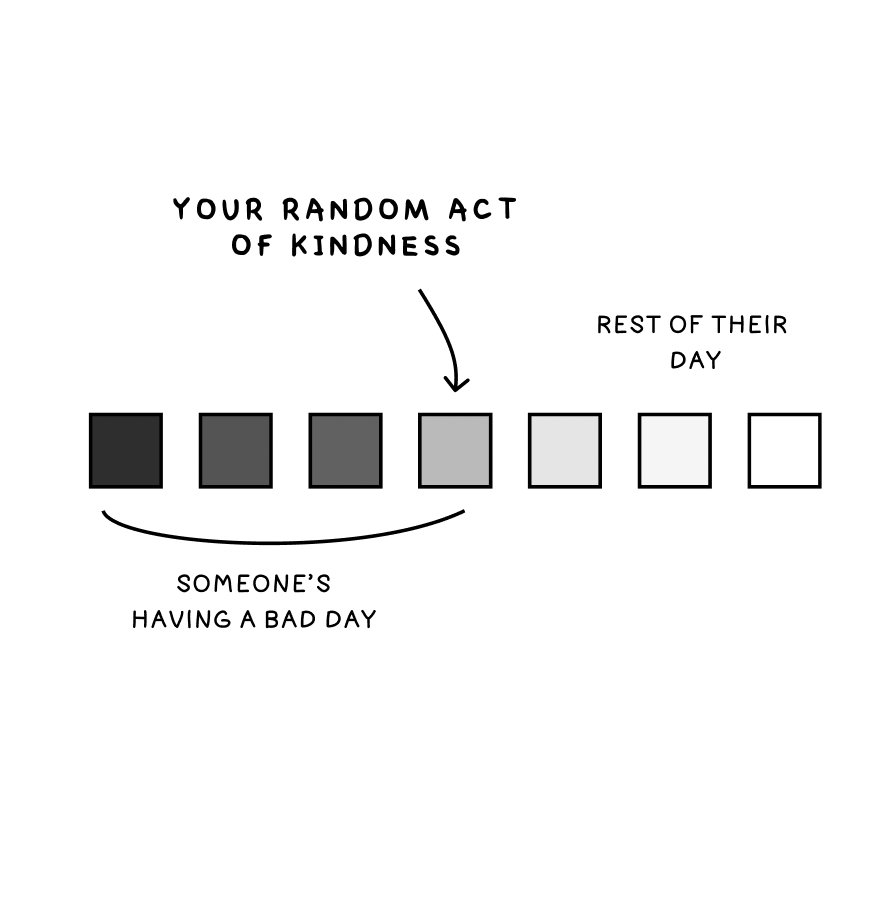Customer care is treating your customers with respect and dignity. It requires curiosity and empathy on everyone’s part in a startup.
Customer Care
“Empathy isn’t dictated to us by a focus group or a statistical analysis. Empathy is the powerful (and rare) ability to imagine what motivates someone else to act. […] What is required is a persistent effort to understand how other people see the world, and to care about it.”
Seth Godin in “If I Were You…“
One of the key services we provide clients is helping them develop an appreciation for their customers’ and prospects’ needs, goals, and operating reality. This appreciation can flow from customer interviews but is also an essential component of sales discovery calls, closing deals, renewals, customer service, and user experience research.
Our clients are typically teams of between two and fifteen, with everyone wearing multiple hats in regular contact with prospects and customers. As a result, everyone needs to be curious about customers and cultivate empathy–an appreciation for other perspectives in a conversation or interaction.
In larger firms sales, customer service, and research are handled by specialists–in fact they may be segmented further into sub-specialties–who only “play their position” and can lose sight of a holistic perspective on customer needs.
For the most part our clients have not started to rigidly specialize and so it’s easier for someone who is solving a customer problem by fixing a bug or advising them of a workaround to attempt to gain a better understanding of customer needs.
Everyone is still trying to learn more about customer needs and use that understanding to improve sales, marketing, support, and overall strategy. This understanding is essential to enhancing a startup’s products and services. Because every team member is customer-facing, it’s clear that success flows from providing value to customers.
Specialize But Don’t Lose Your Holistic Perspective
We collaborate from time to time with experts who provide advice on sales, marketing, and customer research to larger firms than our typical clients. I always learn something because they are talented experts who point out things that I didn’t know, did not appreciate, or overlooked. But I am also struck by how often they take a much narrower view of a situation–adopting the metrics local to the function they serve.
My advice to founders is to value the perspective of functional experts but to be careful not to lose your curiosity and your empathy. Appreciate a holistic or systems view that incorporates how the different roles need to harmonize and support each other to provide customer care. And to remember that everyone can provide insights into customer needs if they retain their curiosity and ask questions while they focus on the specifics of their role.
Research can be done in a way that provides insights and deepens the business relationship by involving sales and customer support when a customer would benefit. Sales can focus on closing new business or renewals but also listen and pass along insights about customer needs that can improve the product or support. Support conversations can help resolve a customer issue and provide a point of departure for additional sales or follow-on research conversations.
Postscript: The Formula For Success
I did an interview with Etienne Garbugli for his Lean B2B Podcast on March 9, 2021 that highlighted the key point
Etienne Garbugli: You’ve been helping companies for almost two decades. You’ve seen different models. I know you work with some hardware companies, software, different types of organizations. Has your perspective on starting businesses evolved over the years? How do you see B2B entrepreneurship evolving moving forward? Where was your understanding of it before, where is it now, and where do you think it’s trending?
Sean K Murphy: I guess the first thing to say is there’s no fixed formulas for success unless you want to buy a franchise, and even then, things change. So, I think you’ve got to be careful about people that are promising you a fixed formula for success.
There’s a really good article by Arie de Geus from the late eighties about Planning as Learning. And he says, “The ability to learn faster than competitors may be the only sustainable competitive advantage.” That, to me, is the core, at least for technology entrepreneurship. That means that there’s a need for ongoing exploration and discovery efforts, not only about natural phenomena and technology innovation. I wouldn’t call it basic research. I’d use Donald Stoke’s term from “Pasteur’s Quadrant” of use-inspired research, where you’re open to discovering basic principles.
I think there has to be an ongoing, intense curiosity and care on the part of everyone in the startup who touches the customer about how to create value or how to remove things that are limiting or restricting the value customers will get from the product.
I don’t know if that’s actually changed. I think that’s probably always been true. I started SKMurphy in 2003. And that aspect of it I don’t think has changed. You have to have an intense curiosity. You have to be committed to creating value and you have to be committed to ongoing learning.
Related Blog Posts
- A Common MVP Evolution: Service to System Integration to Product
- Drawing a Map of the Customer Organization
- Landing Your First Ten Customers: Videos, Slides, and Other Resources
- Why is it So Hard to Get Your First Ten Customers?
- 40 Tips for B2B Customer Development Interviews
- Concierge MVP or Service-First Forces You To Be Your Own Test Pilot
- Q: How Do I Make Sure I Understand The Customer’s Problem and Present a Vision of a Solution?
- The Customer Determines The Details That Matter
- Be Clear on Your Product Roadmap to Customers
Image Credit: Never underestimate the power of a simple gesture” by Harsh Darji (@harshdarji_4))
